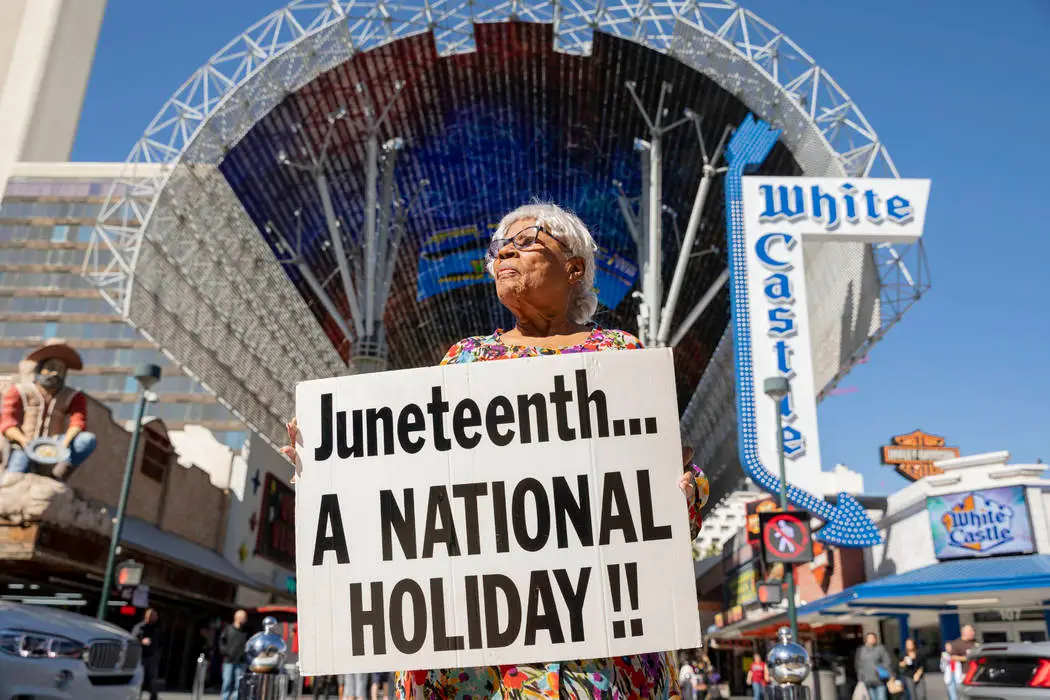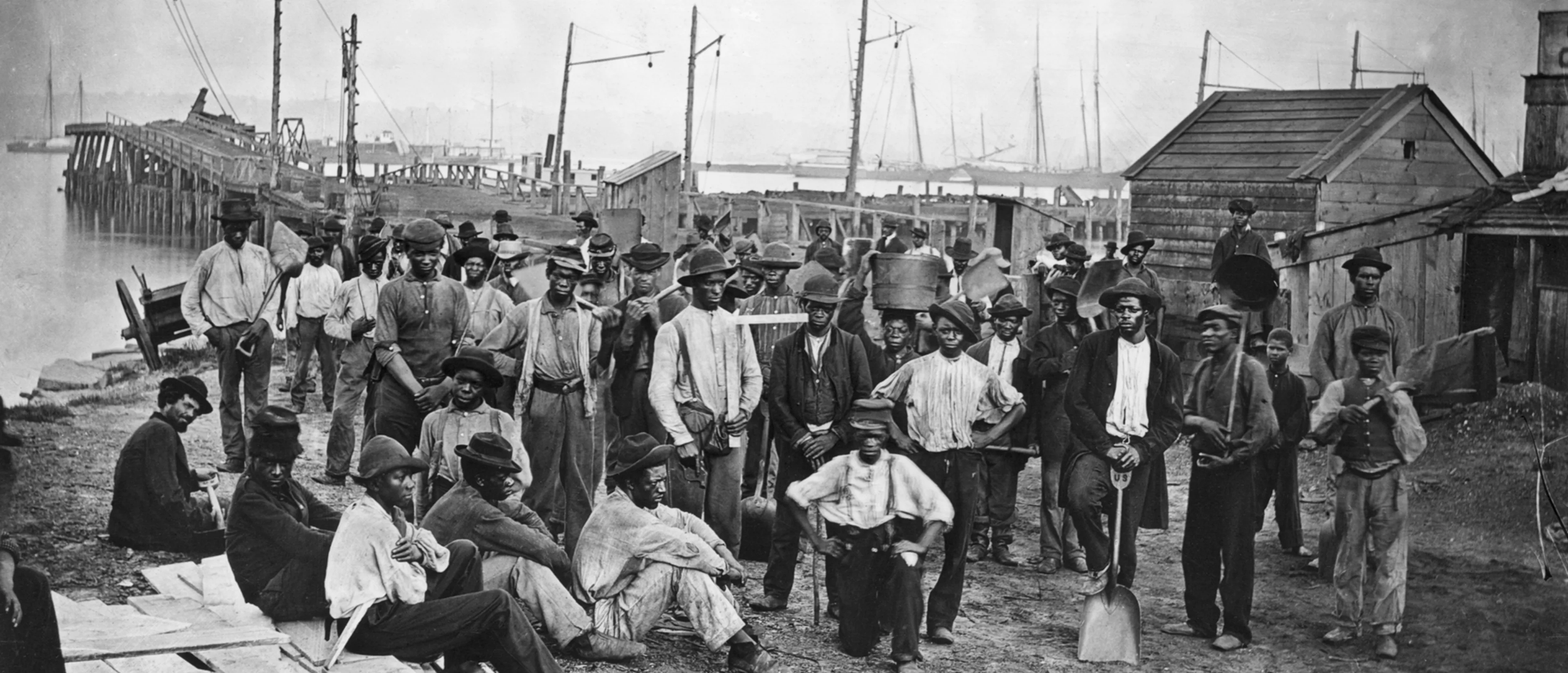
What is the Juneteenth Story?
Juneteenth is a historical tipping point for the African American community and the nation, recognizing the monumental moment that ended slavery.
On June 19, 1865, Union Major-General Gordon Granger issued General Order #3 in Galveston announcing freedom from slavery in Texas, one of the last places to receive the news.
The date, since dubbed “Juneteenth,” is now observed annually as a federal holiday to celebrate the Emancipation Proclamation’s enforcement and the liberation of the remainder of the enslaved both in Texas and throughout the newly reformed United States.

“Juneteenth is the midway point between what was once known as the underground railroad to physical freedom to now the above ground railroad to liberating intellectual learning and clarity.”
— Dione Sims, Legacy Member
“December 31, 1862
Freedom’s Eve, the first Watch Night service was held amongst enslaved and free African Americans at churches and homes, awaiting the news that the Emancipation Proclamation had taken effect.”
“January 1, 1863
The Emancipation Proclamation was issued by President Abraham Lincoln.”
“March 3, 1865
The creation of the Freedmen’s Bureau, a federal agency created to help African Americans transition from slavery to freedom.”
“June 19, 1865
Major General Gordon Granger arrived in Galveston, TX, and announced the end of the civil war and the end of slavery.
”
“December 6, 1865
13th Amendment to the U.S. Constitution ratified: Abolition of slavery in the United States.”
“April 6, 1866
Civil Rights Act of 1866, the nation’s first civil rights law declaring that all persons born in the United States to be citizens, “without distinction of race or color, or previous condition of slavery or involuntary servitude.””
“June 19, 1866
The first Juneteenth was celebrated, marking the one-year anniversary of the official end of the US Civil War and slavery. ”
“June 19, 1867
The first official Juneteenth celebration took place in Austin, Texas established with the help of the Freedmen’s Bureau.”
“July 9, 1868
The 14th Amendment granted African Americans the right of citizenship.”
“February 3, 1870
The 15th Amendment asserted that the right of citizens of the United States to vote shall not be denied or abridged by the United States or by any state on the account of race, color, or previous condition of servitude.”
“1900s
Emancipation Day (Juneteenth) Celebrations.”
“1950-1960 Civil Rights Era
Public Juneteenth celebrations dwindled in favor of more private celebrations, as the move towards greater freedom for African Americans expanded during the Civil Rights Movement.”
“1965
Voting Rights Act directed the Attorney General to enforce the right to vote for African Americans.”
“May 12–June 24, 1968
The Poor People’s Campaign led more than fifty thousand people to gather to commemorate Juneteenth at the Solidarity Day and march on Washington, D.C., inspiring a “spirit of Juneteenth” to be spread across the country in local communities. ”
“1970
A revival of Juneteenth celebrations emerged across the United States in major cities.”
“January 1, 1980
Texas is the first state to declare Juneteenth a state holiday led by Al Edwards, a state legislator.”
“1989
Fair Housing Amendments Act of 1989 prohibits discrimination in housing because of race, color, sex, religion, national origin, disability, and familial status.”
“1994
The era of the “Modern Juneteenth Movement” began when a group of Juneteenth leaders from across the country gathered in New Orleans, LA to work for greater national recognition of Juneteenth, birthing several national Juneteenth organizations.”
“1997
Through the leadership of Lula Briggs Galloway, President of the NAJL and Rev. Ronald V. Myers, Sr., M.D., Chairman of the NAJL, the U.S. Congress officially passed historic legislation recognizing Juneteenth as “Juneteenth Independence Day” in America.
The first flag representing the Juneteenth holiday was created by Ben Haith, founder of the National Juneteenth Celebration Foundation (NJCF).”
“2014
Juneteenth Historical Marker erected in Galveston by the Texas Historical Commission.”
“2016
Dr. Opal Lee conducted a symbolic walk from Fort Worth, TX to Washington, D.C., leaving in September 2016 and arriving in Washington in January 2017 to petition to make Juneteenth a federal holiday. ”
“2020
Rep. Sheila Jackson Lee introduced a resolution recognizing the historical significance of the Juneteenth.
Many corporations began recognizing Juneteenth as a company holiday.”
“June 17, 2021
Juneteenth National Independence Day Act is signed into law.
”
“2026
National Juneteenth Museum is set to open to the public.”
